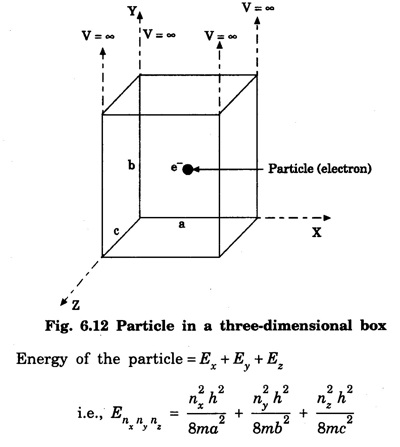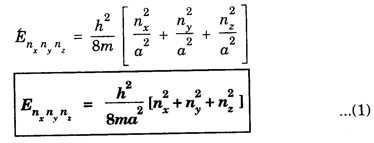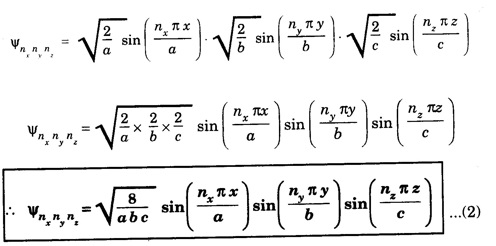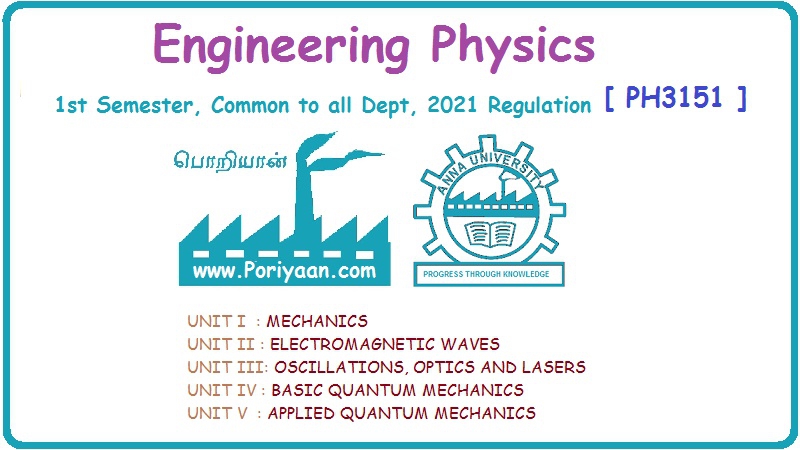Engineering Physics: Unit IV: Basic Quantum Mechanics
Extension to Infinite Well Three Dimensions (3D Box)
Quantum Mechanics
The solution of one-dimensional potential well is extended for a three-dimensional (3D) potential box.
EXTENSION TO INFINITE WELL THREE DIMENSIONS (3D Box) The solution of one-dimensional potential well is extended for a three-dimensional (3D) potential box. In a three-dimensional potential box, the particle (electron) can move in any direction in space. Therefore, instead of one quantum number n, we have to use three quantum numbers, nx , ny and nz, corresponding to the three coordinate axes namely x, y and z respectively. If a,b,c are the lengths of the box as shown in fig. 6.12 along x, y and z axes, then If a = b = c as for a cubical box, then The corresponding normalised wave function of the particle in the three dimension well is written as From equations (1) and (2), we understand that several combinations of the three quantum numbers (nx, ny and nz) lead to different energy eigen values and eigen functions. Note: Three dimensional infinite potential well is an example of quantion dot. Suppose a state has quantum numbers nx = 1, ny =1, nz = 2 Then, nx2 + ny2 + nz2 = 12 + 12 + 22 = 1 + 1 + 4 = 6 Similarly, for a combination nx = 1, ny =2, nz = 1 and for a combination nx = 2, ny =1, nz = 1 The corresponding wave functions is written as It is noted from equations (3) and (4) that, for several combinations of quantum numbers, we have the same energy eigen value but different eigen functions. Such a state of energy levels is called degenerate state. The three combinations of quantum numbers, (112), (121) and (211), which give the same eigen value but different eigen functions are called 3-fold degenerate state. When only one wave function corresponds to the energy eigen value, such a state is called non-degenerate state.


Example


Degeneracy
Non-degenerate state:
Suppose

Engineering Physics: Unit IV: Basic Quantum Mechanics : Tag: : Quantum Mechanics - Extension to Infinite Well Three Dimensions (3D Box)
Related Topics
Related Subjects
Engineering Physics
PH3151 1st semester | 2021 Regulation | 1st Semester Common to all Dept 2021 Regulation
